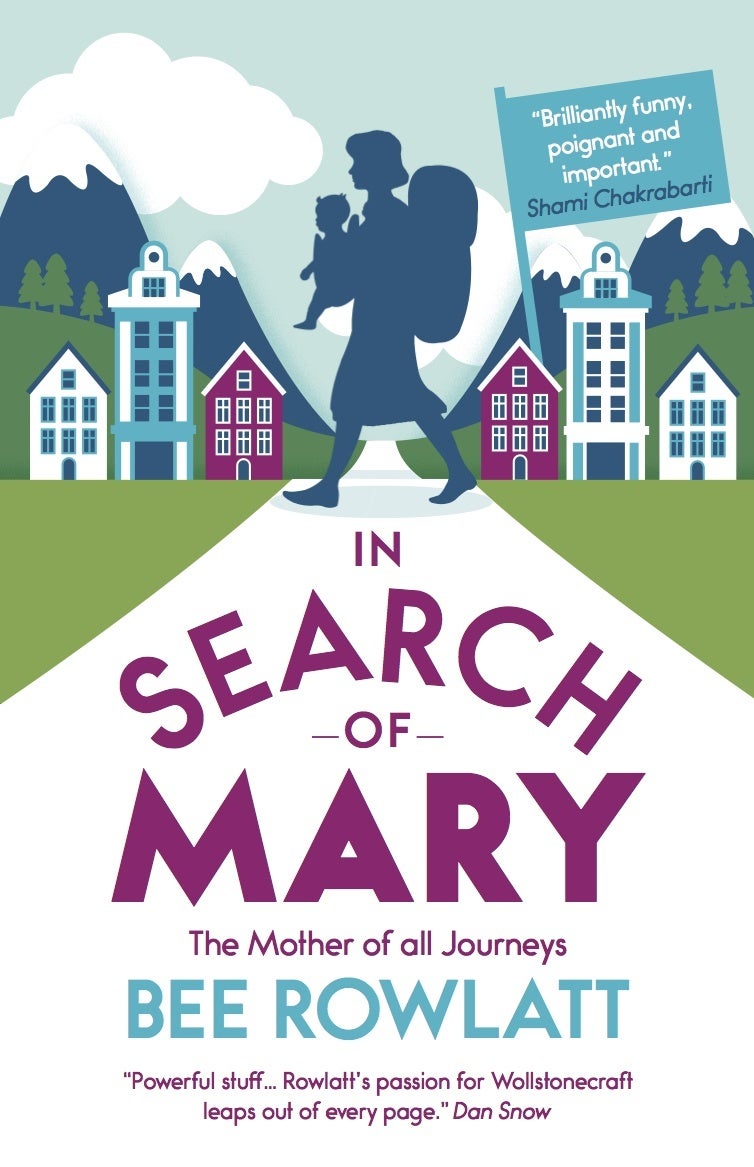In Search of Mary: The Mother of All Journeys, by Bee Rowlatt - book review
Suffering from a 'mum-life' crisis, Bee Rowlatt decides to retrace Wollstonecraft's footsteps, taking her baby along too

Mary Wollstonecraft is famous as the pioneering feminist who wrote A Vindication of the Rights of Women. But she was also an intrepid traveller, journeying to Scandinavia accompanied only by her maid and baby daughter. It was shocking for a gentlewoman to travel without male protection in the 18th century and the book she published, Letters Written During a Short Residence in Sweden, Norway, and Denmark, became a bestseller and an inspiration for Romantic writers and poets.
Enter Bee Rowlatt, a married mother of four, is suffering from a “mum-life” crisis and in search of a mission. Having been obsessed with Wollstonecraft from her teens, she decides to retrace her travels and take her own baby along.
Wollstonecraft went to Scandinavia on a treasure hunt. Her lover, Gilbert Imlay, had mislaid a shipload of silver that he had entrusted to a dodgy captain. Sadly, despite her brilliant account of the trip, Wollstonecraft failed to find the silver and lost Imlay’s affections. But Rowlatt has a joyous time with baby Will as she follows Mary’s travails, not least because Scandinavians are star performers in equality and welcome babies in most social settings.
Wollstonecraft first met Imlay and bore his child in Paris, galvanised to go there by the ferment of the French Revolution. Rowlatt follows, but Paris proves less child friendly. Even so, the experience is less of an ordeal than for Wollstonecraft, who lived in freezing penury under the threat of arrest and the guillotine. Later, Mary wanted to go to America, the birthplace of modern revolutions, but never made it. Rowlatt does however, and while there she quizzes a series of third-wave feminists on where liberation should head next.
Rowlatt is unafraid of self-criticism and asks herself how she, affluent and privileged, can compare her lot to that of more downtrodden women. Then there is the vexed question of servants. Both Wollstonecraft and Rowlatt employed nannies, and it is difficult for Rowlatt to reconcile that with wider visions of emancipation.
Such contradictions remain, but Rowlatt makes an excellent case for travelling with an infant. Will charms all-comers and Rowlatt’s travelogue is always entertaining as she explores the life and times of the ever passionate and never compromising Wollstonecraft who, more than two centuries on, still has much to teach us.
Alma, £12.99
Join our commenting forum
Join thought-provoking conversations, follow other Independent readers and see their replies
Comments